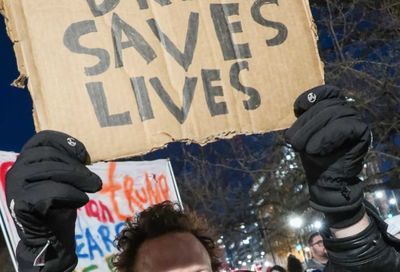Conversion therapy increases risk of suicide for gay, bisexual adults
LGB adults who have experienced conversion therapy are twice as likely to think about suicide as their peers

New research has found that gay and bisexual people who experience conversion therapy are twice as likely to think about and attempt suicide as peers who haven’t experienced the harmful practice.
The Williams Institute at UCLA School of Law examined cisgender and gender non-binary lesbian, gay, and bisexual adults to determine whether conversion therapy is associated with suicidal ideation and attempts.
In addition to greatly increasing the risk for suicidal ideation, Williams Institute also found that four out of five LGB adults received conversion therapy from a religious leader.
“Rather than being therapy, so-called ‘conversion therapy’ is a minority stressor that reinforces stigma and conveys that being LGB is abnormal, sinful, and should be rejected,” study senior author Ilan H. Meyer, Distinguished Senior Scholar of Public Policy at the Williams Institute, said in a statement.
“We found that people who undergo conversion therapy are at increased risk of suicide ideation and attempts,” Meyer continued. “This is a devastating outcome that goes counter to the purpose of therapy.”
The Williams Institute report found that 7% of LGB adults aged 18-59 have experienced conversion therapy. Of those adults, around 81% received it from a religious leader, and 31% received it from a health care provider, with some having received it from both.
Among those adults who had undergone the practice, the Williams Institute found that they were 92% more like to have lifetime suicidal ideation, 75% more likely to plan to attempt suicide, and 88% more likely to attempt suicide resulting in no or minor injury.
The odds of experiencing conversion therapy were greater for those who grew up with a parent or other adult who was depressed, mentally ill, or suicidal, lived in a household with parental intimate partner violence, or reported emotional, physical, or sexual abuse, Williams Institute found.
“Leading medical and social services organizations condemn the practice of conversion therapy as ineffective and harmful,” John R. Blosnich, Assistant Professor with the Suzanne Dworak-Peck School of Social Work at the University of Southern California and lead author on the report, said in a statement. “Outreach to the public on the harms of conversion therapy is needed, particularly in areas where the practice is commonly used.”
Widely debunked and declared ineffective by former “ex-gay” leaders, conversion therapy seeks to forcibly change an LGBTQ person’s sexuality or gender identity.
Such efforts can take the form of talk therapy, or more extreme measures such as aversion or electroshock therapy.
Read more: Joe Biden calls conversion therapy ‘sick,’ emphasizes importance of Equality Act
Medical experts have noted that side effects of the therapy can include depression, post-traumatic stress disorder, suicidal ideation, and, in more extreme cases, suicide attempts.
The United Nations this month called for an end to the “cruel, inhuman, or degrading practice” and said forms of conversion therapy “may amount to torture.”
Currently, five countries — Malta, Ecuador, Brazil, Taiwan, and Germany — ban the practice of conversion therapy outright.
In the United States, 20 states and several cities or counties have banned the practice on minors.
Some members of Congress have also introduced legislation that would ban the practice nationwide by having it declared a form of fraud.
Related:
United Nations calls for an end to “cruel, inhuman, or degrading” conversion therapy
Republican Party’s election platform endorses conversion therapy, opposes LGBTQ rights
Read more:
NBJC’s David J. Johns on race, justice, and the importance of replacing Trump
Gay Trump supporters complain about Supreme Court giving them more rights
Pride 2020: Pride-related events and special offers happening throughout June
Support Metro Weekly’s Journalism
These are challenging times for news organizations. And yet it’s crucial we stay active and provide vital resources and information to both our local readers and the world. So won’t you please take a moment and consider supporting Metro Weekly with a membership? For as little as $5 a month, you can help ensure Metro Weekly magazine and MetroWeekly.com remain free, viable resources as we provide the best, most diverse, culturally-resonant LGBTQ coverage in both the D.C. region and around the world. Memberships come with exclusive perks and discounts, your own personal digital delivery of each week’s magazine (and an archive), access to our Member's Lounge when it launches this fall, and exclusive members-only items like Metro Weekly Membership Mugs and Tote Bags! Check out all our membership levels here and please join us today!























You must be logged in to post a comment.